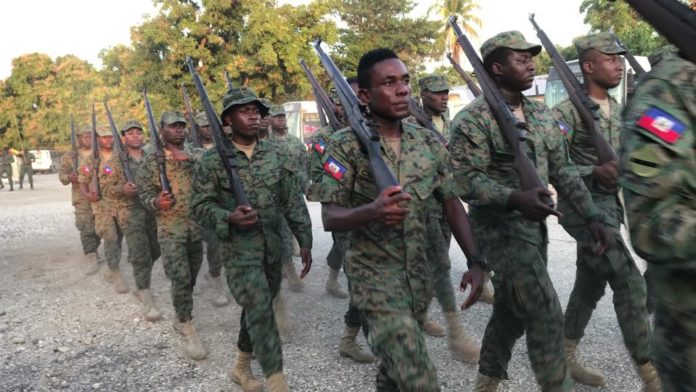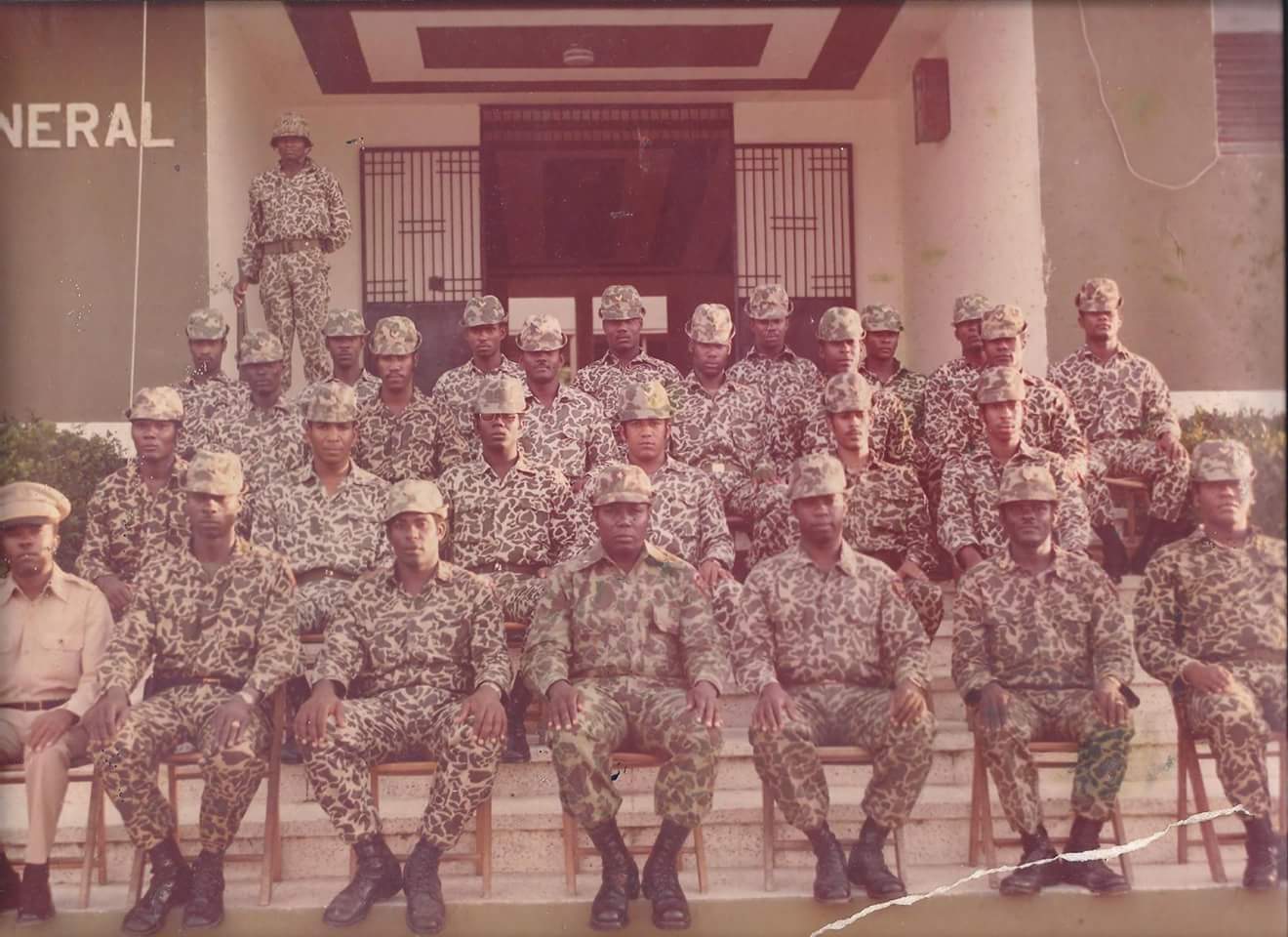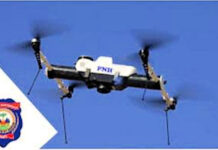
Under the corrupt and reactionary Jovenel Moïse regime, it is almost certain that the “new” Haitian Army, resurrected last year, will eventually resemble and act like the repressive “old” one disbanded in 1995. This article presents a useful synopsis of the positions and issues involved. – HL
After 22 years of a forced disarmament, the Haitian army is back. President Jovenel Moïse reinstated the national military in November 2017 despite a barrage of objections to the decision.
The recent history of the Haitian military is fraught with examples of corruption and oppression, which led to its disbanding in 1995. But supporters say the new force has the potential to create jobs and strengthen Haiti’s international standing. Whatever direction the revived military takes will affect the lives of millions of Haitians.
The new unit is comprised of around 500 soldiers, whose mission is centered on civil works. It is expected to eventually expand to 5,000 troops. That force will be focused on national defense. Mr. Moïse appointed Jodel Lesage as commander in chief of the army and provided $8.5 million in defense spending for 2018. Haiti’s defense minister, Hervé Dénis, called it a “defense rather than a security force.” Mr. Moïse said in November the force will “not be an army of repression…. This is the army I have promised you.”
Given the army’s past repression of the Haitian people, the military’s return has been a cause of concern to many.
What remains unclear is how the military will interact with other national authorities, such as the executive office, the justice department, and the national police force, which until now had been in charge of internal security alongside a 13-year United Nations peacekeeping mission that ended in 2017. A reduced UN police mission, MINUJUSTH, remains deployed in Haiti.
The army is an emblem of national pride and history for Haitians, regardless of recent problems. The nation’s roots are in its military. An uprising from 1791 to 1804 overthrew French rule to end slavery and gain independence.
The army is also, for some, a contemporary sign of Haiti’s sovereignty, something foreign powers have long undercut. It took decades for the U.S. and Europe to recognize Haiti as a nation after its revolution. In 1825, French warships besieged the country’s ports, demanding the young nation to pay 150 million francs in reparations to former slaveholders (Haiti eventually paid about 90 million francs, which, if restituted with interest, would be worth about $22 billion today).
U.S. Marines invaded and militarily occupied Haiti in 1915, installing a proxy force that would become the Armed Forces of Haiti when they left in 1934. Conflict escalated between that force and Haitian citizens in following decades. The 1957 election of Francois “Papa Doc” Duvalier, who later named himself “president for life,” ushered in a brutal era of military repression. Mr. Duvalier created the Tontons Macoutes, a paramilitary force used to solidify his power. The Macoutes were responsible for systematically murdering, brutalizing, and terrorizing civilians and political opponents.
President Jean-Bertrand Aristide’s democratic nationalist platform alarmed the military after he was elected in December 1990, leading to a successful coup d’état in 1991 that forced Mr. Aristide, a former Salesian father, into exile. Upon his return to power in 1994, Mr. Aristide disbanded the force and transferred responsibility for domestic security to the national police.
Given the army’s past repression of the Haitian people, the military’s return has been a cause of concern to many. Protesters have taken to the streets, calling for leaders to shift the defense budget money to education. Dan Beeton, the director of international communications for the Center for Economic and Policy Research (CEPR), said bringing back the army is a net negative for the country.
“There is every reason to fear that the new Haitian military will serve the same role as the old Haitian military: to keep the people in line, to stamp out dissent, and to ensure the interests of the Haitian elite and of the U.S. government are well guarded,” he said.

But the president argues that the revival of the military is a chance for a new beginning. “The army is our mother,” Mr. Moïse said in November. “When your mother is sick and wears dirty clothes, you do not kill her. You take her to the hospital. So let us join forces to provide needed care to our mother.”
Some Haitians express optimism about the restored military, noting that the new force will create jobs in a country with unemployment of more than 40 percent. A revived Haitian military could perform civil works and help in disaster relief. Haiti has long been dependent on foreign aid to help out in the wake of a natural disaster; a local force could mobilize faster and would have a more nuanced knowledge of the country than international organizations just arriving during a crisis.
Joining the military — or conversely joining the forces who oppose the military — has historically been a pathway for social mobility in Haiti, said Chelsey Kivland, an assistant professor of anthropology at Dartmouth College.
“Because the military has been so involved in political conflict, has been a driver of political factionalism and coups d’etat, if you position yourself on either side — either pro-military or anti-military — it can be an avenue for gaining a following and for obtaining some kind of political influence,” she explained.
She said neighborhood watch and defense groups formed for communal protection from the Macoutes. The groups later became important organizations for funneling aid projects through local actors, although some groups continued some of the more nefarious abuses of the military.
Ms. Kivland and Mr. Beeton noted signs to look for in the coming months that might suggest the path the military is taking — returning to its old form or, as the president promises, becoming a reimagined force.
“Are they engaged in civil works, social work, civil engineering projects?” she said. “That will tell us a lot about what direction is this military taking in terms of supporting the public sector versus engaged in these political battles.”
Given the level of foreign influence in Haiti, people in other countries can play an important role in monitoring the revived army, Mr. Beeton said. Social media is a tool that was unavailable in the 1990s.
“If the new military commits abuses, it should be easier to get this information out and hopefully demand accountability,” he said.
An earlier version of this article was published in the Jesuit review “America.” Wyatt Massey, a former O’Hare Fellow at “America,” recently returned to the United States from Haiti.










